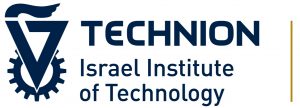In Urbanites research group we examine the interplay between urban forms and human experience. We specifically focus on the implications of major urban development and redevelopment processes on planning cultures, urban living, social diversity, and displacement. Urbanites research group also explores and advances versatile qualitative methodologies in urban planning research and practice by developing and implementing new approaches to data collection, data analysis, and representation of research outcomes.
Urbanites research group hosts a multidisciplinary group of urban researchers – social scientists, architects, and urban planners. This variety of paradigms and epistemologies establishes fertile foundations for interdisciplinary research, enriching a better understanding of socio-spatial relations and how to make better urban spaces for social and environmental well-being.
Alongside our reflection of how urban planning ought to maintain and nourish urban residents, we also develop critical statements regarding urban redevelopment as it is practiced nowadays. We investigate the multiscalar complexities of urban development and regeneration actions and policies by juxtaposing them against social and spatial justice issues. Urbanites strive to contribute to the development of ethical planning, which considers environmental, social, cultural, psychological and economic needs as they are represented in diverse manners among different groups and landscapes.
Our researchers
Assoc. Prof. Efrat Eizenberg (Director)
Dr. Helly Hirsh, Visiting Scholar
Ori Gershon, Ph.D. candidate
Alon David, M.Sc. student
Mika Zacks, M.Sc. Student
Ongoing Projects
Heterologous urbanism: the new urban relations of residential large urban developments (Funded by the Israel Science Foundation 2020-2023)
The vertical urban living in large residential developments that characterize many cities around the world generates a new urban experience. In this project we examine the impact of these urban forms on various aspects of the everyday life such as security, anonymity, community, and social relations. Moreover, we examine the novel implications of this volumetric transformation of the urban landscape on how we understand the city as a whole.
Urban planning for diversity
With an unprecedented number of immigrants entering cities, planning for diversity requires new understandings to inspire planning theory and practice. We approach planning for diversity through in-situ investigation of various urban sites in which social diversity and co-existence of otherwise in-conflict groups is successfully happening, and through investigation of how diversity is addressed, defined, and practiced in the contemporary planning discourse and new plans of intercultural cities.

